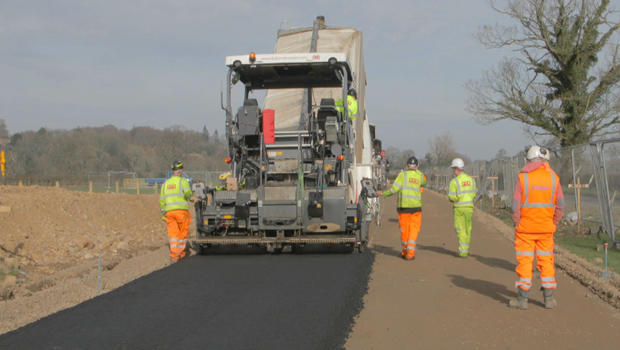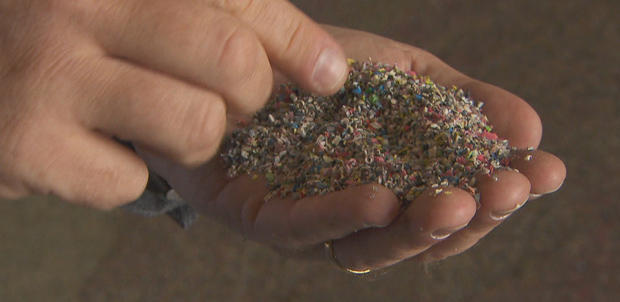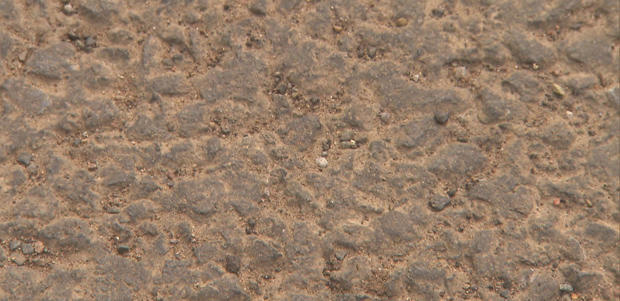Can plastic pavement curb the world's epidemic of plastic waste?
Ninety percent of the plastic we use ends up in landfills, or in the world's oceans. Now, a Scottish firm has invented a way to recycle that hard-to-use plastic for a role that requires durability: paving roads and highways.
The driveway at Christopher Boyle's 17th-century English estate looks like regular asphalt and feels like regular asphalt, but it's not. It's paved with 21st-century plastic trash.
"It has all the ecological, environmental benefits, but to your ordinary punter, you don't see any difference at all," Boyle said.
It used the equivalent of 750,000 plastic bags and bottles ground up along with other hard-to-recycle plastic. The plastic flakes are mixed at a plant in Scotland with what MacRebur co-founder Toby McCartney calls a secret ingredient. It's then bagged up and shipped to asphalt manufacturers.
That blend replaces some of the black, oil-based bitumen that keeps regular roads together.
"For every ton of bitumen we replace, we save a ton of carbon emissions," said McCartney, "so for the environment, it's the way forward."

MacRebur, based in Lockerbie, Scotland, is now paving plastic roads across the world — from highways in England to a street in San Diego, where the firm is also opening a new factory.
CBS News correspondent Roxana Saberi asked, "So, is this a long-term solution to the world's plastic problem?"
"I believe so!" McCartney replied. "It's the stuff that nobody else can use. It's destined for landfill or for incineration. We can take all of that plastic and we can recycle it in our roads."

Environmentalists like Libby Peake are cautiously optimistic.
"They're potentially lower carbon than conventional roads, so that's very positive. What we don't know yet is how much micro-plastics these roads might shed."
- World health report raises concerns about microplastics in drinking water
- Piling up: Drowning in a sea of plastic
- Plastic pollution worsens despite efforts to address the problem
McCartney said, "There are no microplastics present in any of the roads that go down."
Saberi asked, "But shouldn't people just stop using plastic?"
"I don't know whether that's ever really going to happen," McCartney replied.
He said, for now, plastic pavement can curb the world's plastic epidemic, a sentiment shared by Boyle, who says since he laid down his plastic driveway three years ago, it's held up fine.
He thinks the reason more people haven't paved roads with plastic is because they aren't aware of the new option.

Disclaimer: The copyright of this article belongs to the original author. Reposting this article is solely for the purpose of information dissemination and does not constitute any investment advice. If there is any infringement, please contact us immediately. We will make corrections or deletions as necessary. Thank you.







